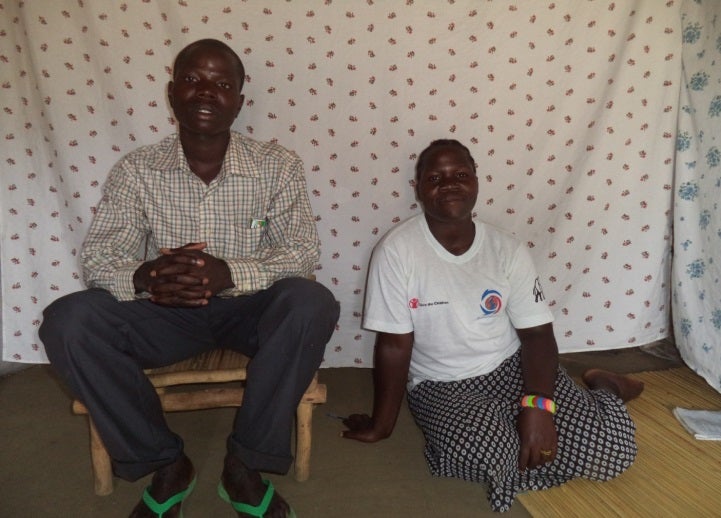GREAT Voices: A Story of Mentorship
The ‘GREAT Voices’ blog series highlights the stories of community members who have been inspired, motivated and changed by Gender Roles, Equality and Transformations (GREAT) Project interventions. Intervention activities include a themed serial radio drama with discussion guides, games and activity cards, Village Health Team capacity strengthening, and a community mobilization process called the Community Action Cycle—all which encourage dialogue and action on community-identified issues related to sexual and reproductive health. Learn more here.
Leader: Mr. Omona
Hometown: Parubanga Parish | Amuru, Uganda

Cases of domestic violence are all too common in Pabo SubCounty, particularly among newly married couples. That’s why the Parubango Community Action Group, chaired by Mr. Omona, identified it as a priority issue to address.
Last year, the group held a community sensitization event to discuss causes of and solutions to domestic violence. After the meeting, Mr. Omona was approached by Apio, a young woman about 17 years old who was newly married and expecting her first child. She confided that her husband always beat her when she complained that he should stop selling their food and using the money to buy alcohol. He also refused to accompany her for her ante-natal care visits, and the medical personnel at the health center would not serve her without her husband present. Apio was desperate. She asked if the Community Action Group could intervene to help change her husband’s behavior.
In response, the Community Action Group invited Apio’s husband, Oketayot, to a meeting with other young men. There, the group discussed issues of domestic violence, raising issues similar to those between Oketayot and Apio. The young men, including Oketayot, listened quietly. Mr. Omona asked the young men to explain why they act violently toward their wives, and Oketayot spoke up about his own situation, sharing:
“My wife bothers me to go with her to antenatal care visits, but I am scared to test for HIV. I’m afraid to test HIV positive.”
“My wife doesn’t want me to go back to school, saying that if I go back, then I should send her to school, too. Because of this, I beat her to shut her up.”
Members of the Community Action Group explained to Oketayot that those situations did not call for violence and that talking calmly with his wife was a better solution. After the meeting, Oketayot was encouraged to keep in touch with the group. He had an open door to come to them any time for advice.
About a month later, Oketayot returned to the group to thank them. In addition to taking time to communicate with Apio, Oketayot accompanies her to antenatal care visits at the local health center and helps her with chores like fetching firewood and water. He excitedly reported that he tested HIV negative and had made plans to return to school in 2015 to continue his studies.
Today, Oketayot refers his peers to Mr. Omona and the Community Action Group for counseling. And the Community Action Group holds up Apio and Oketayot as positive examples of working toward a home free of violence.
—
Through the GREAT Project, the Institute for Reproductive Health at Georgetown University and partners Pathfinder International and Save the Children aim to promote gender-equitable attitudes and behaviors among adolescents (ages 10-19) and their communities with the goal of reducing gender-based violence and improving sexual and reproductive health outcomes in post-conflict communities in northern Uganda.
 Where We Work
Where We Work  Press Room
Press Room  FACT Project
FACT Project  Passages Project
Passages Project  Learning Collaborative
Learning Collaborative  Search All Resources
Search All Resources  Social Norms
Social Norms  Fertility Awareness Methods
Fertility Awareness Methods